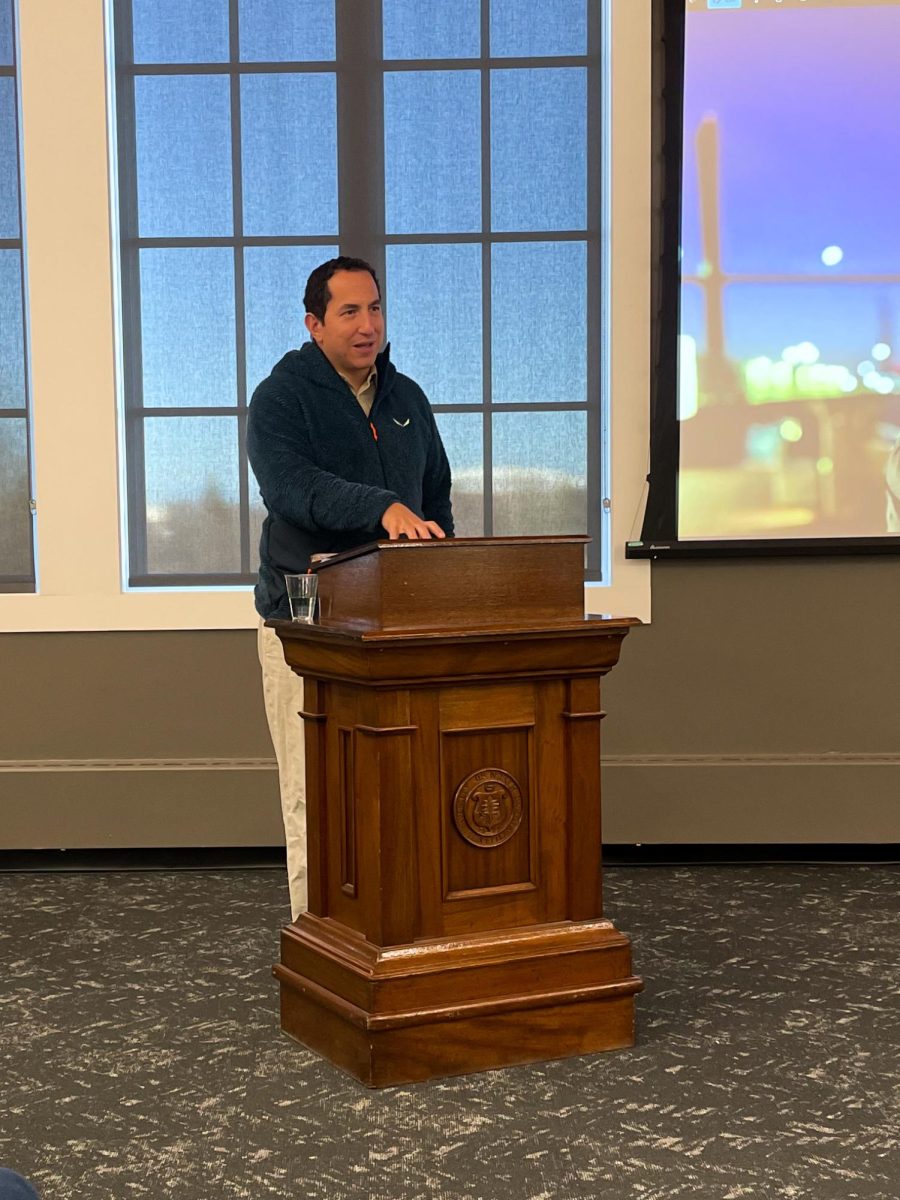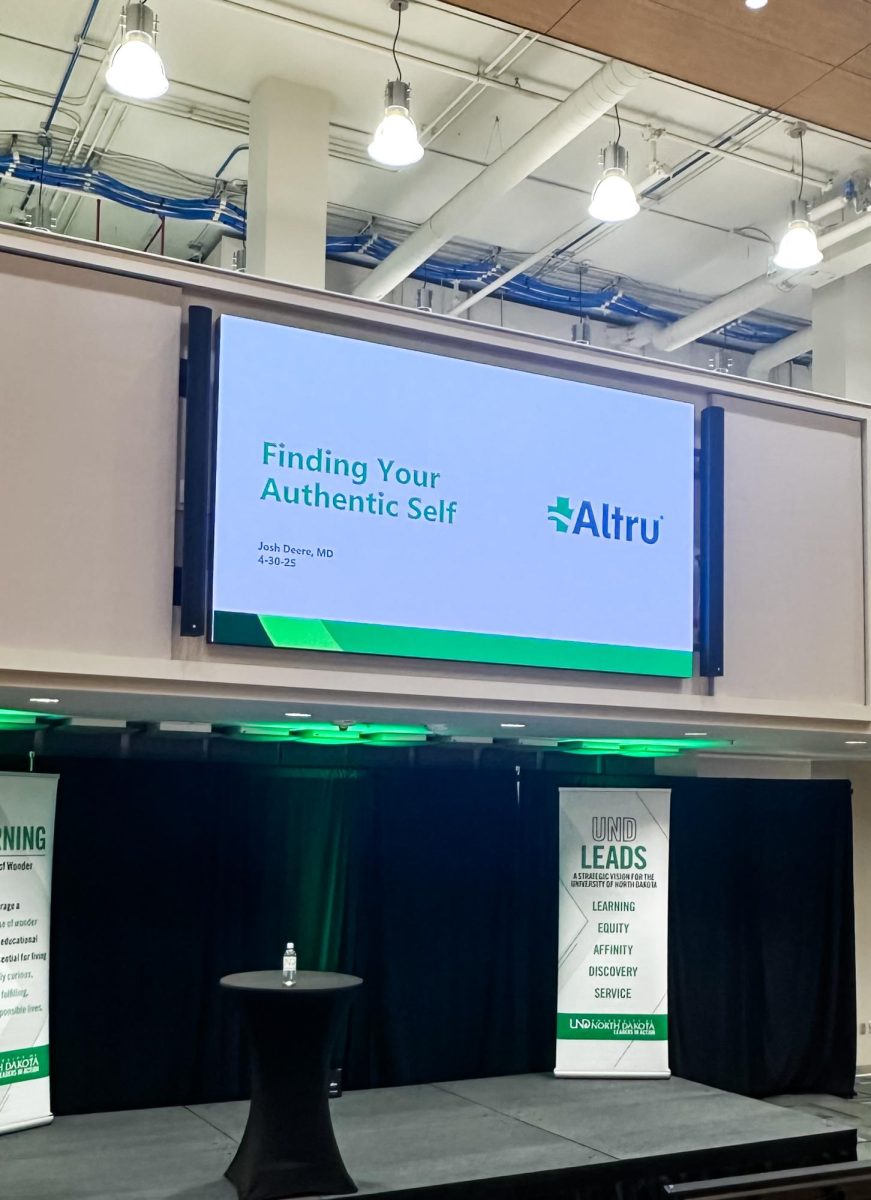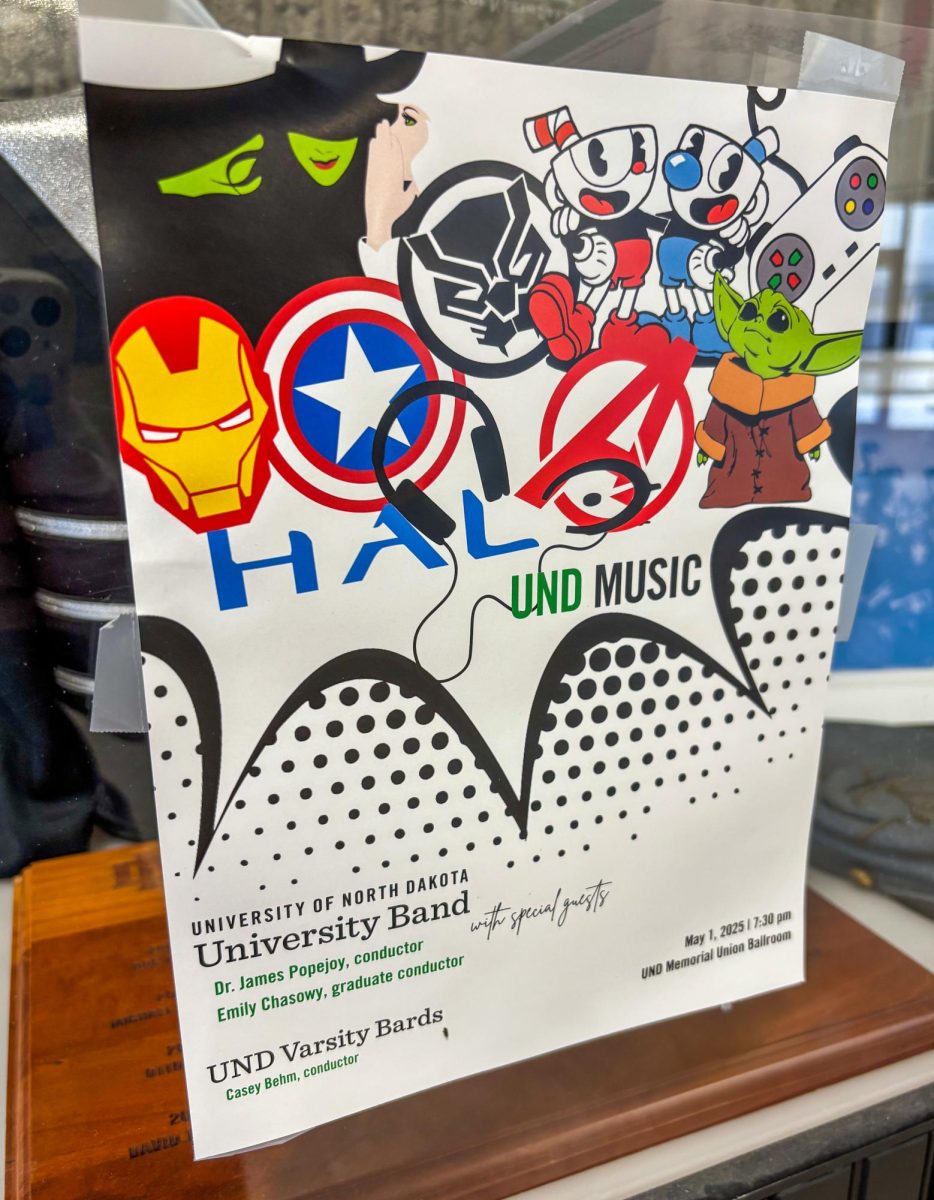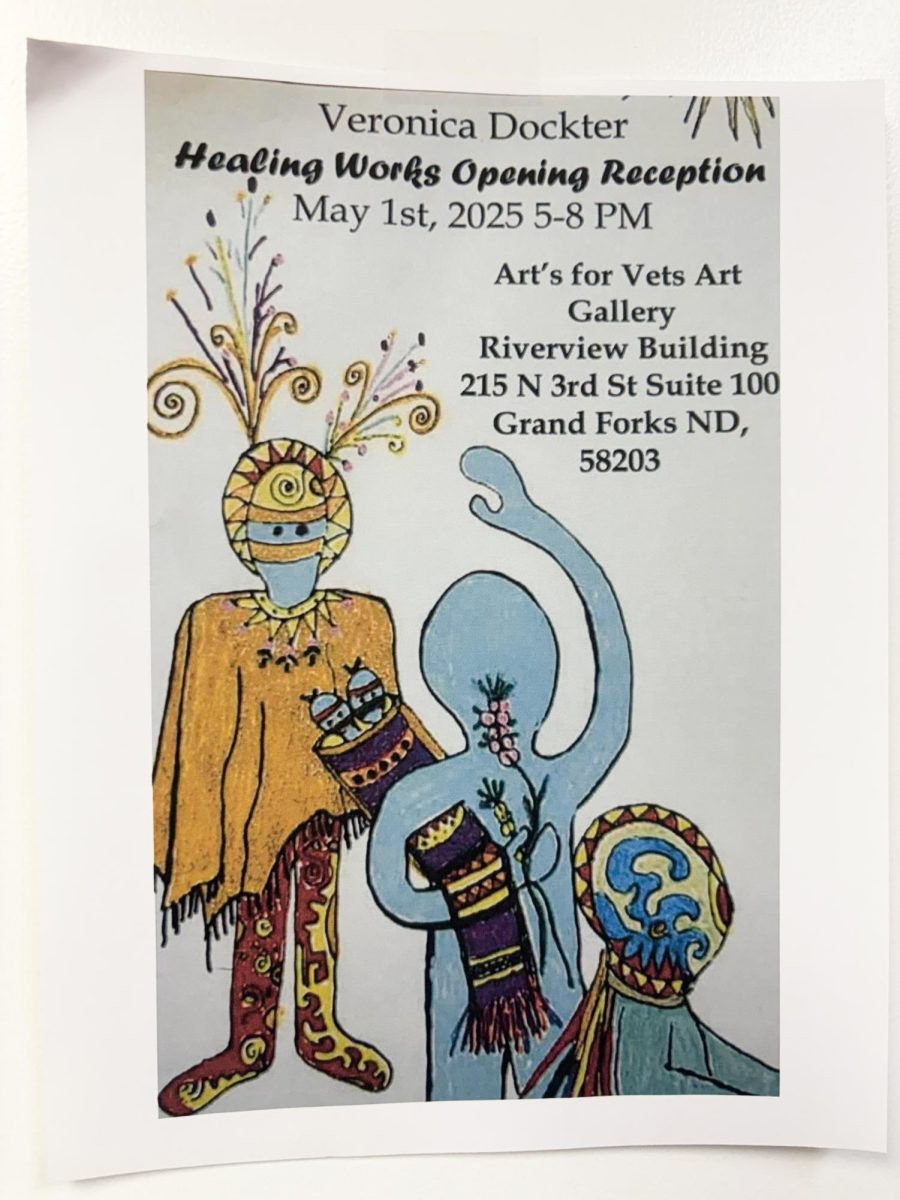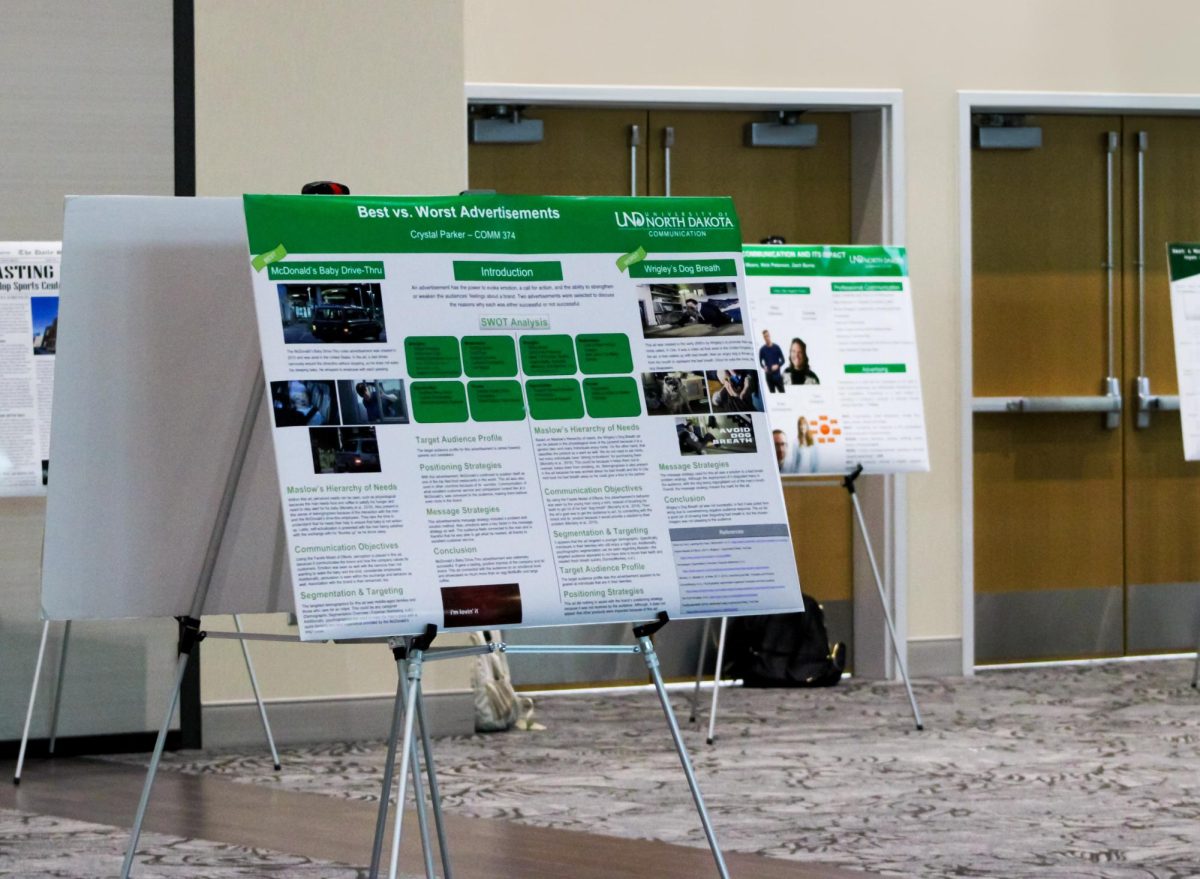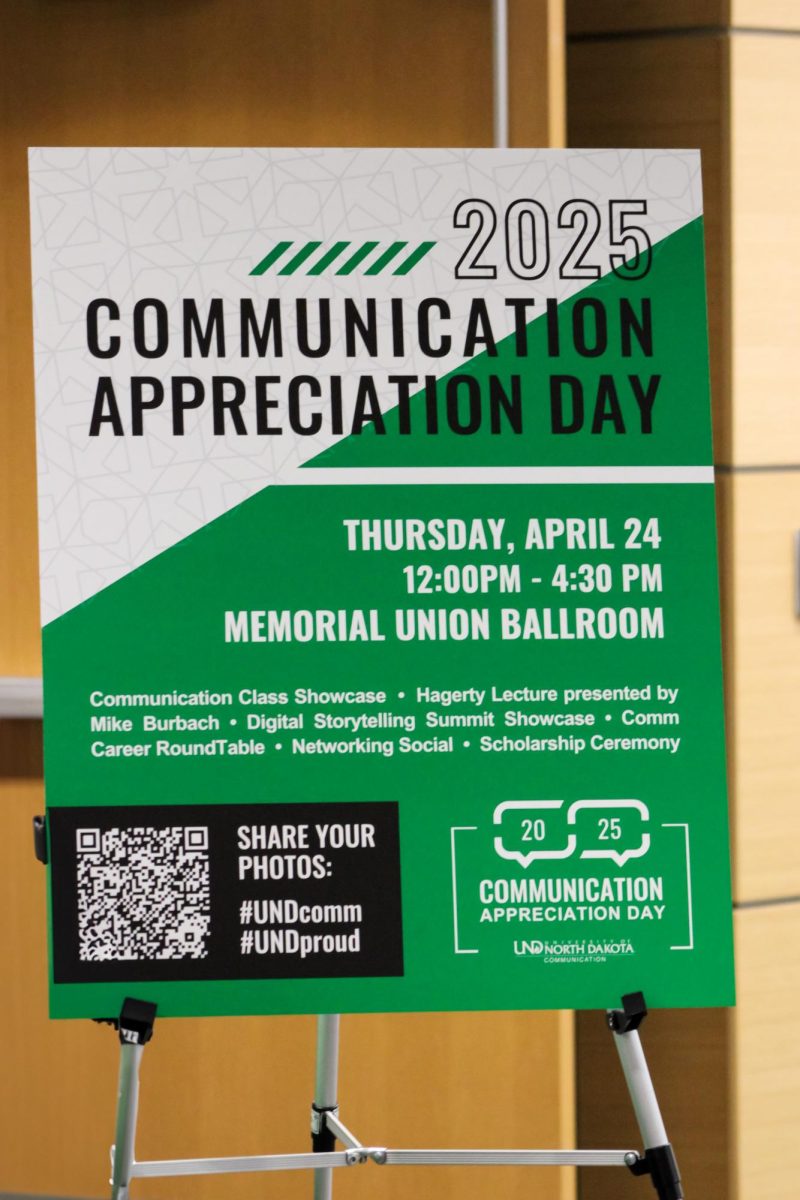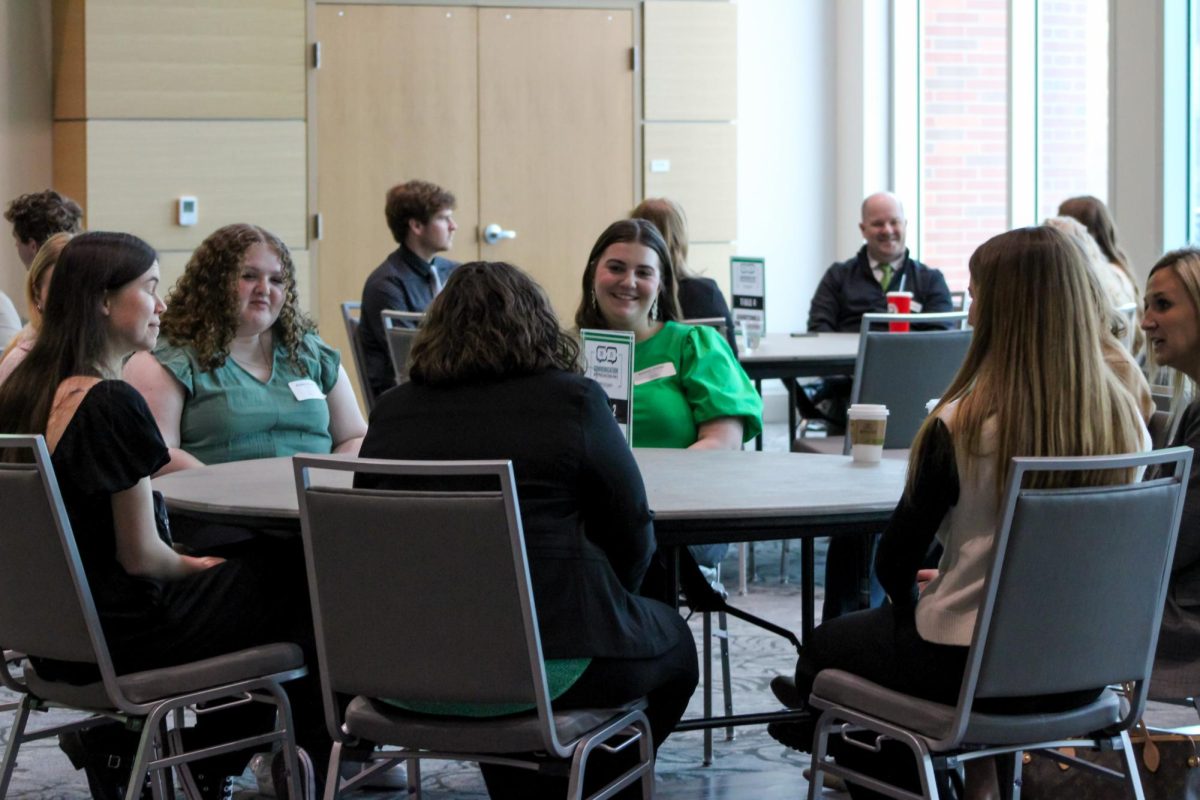With the 2024 U.S. elections concluded, Alexander Heffner visited the University of North Dakota to discuss the future of journalism, the health of American democracy, and his belief in America’s resilience. As the inaugural “journalist-in-residence” for UND’s newly launched series, Heffner brought a unique perspective grounded in his experiences as a journalist and his bridge-building approach in a politically divisive landscape.
Heffner’s career began as a high school student in suburban Massachusetts, where he hosted a radio show and dialed public figures for interviews. By 2008, he co-founded Scoop 08, a youth-led news website covering the presidential election with student reporters nationwide. This early foray into journalism showed Heffner how diverse voices can constructively work together across the political spectrum.
Heffner’s invitation to speak at UND came through a chance meeting with Joseph Banish. In 2022, while filming an episode of “Breaking Bread” with North Dakota Governer Doug Burgum, Heffner contacted Banish, who then worked at the Grand Forks Herald, inviting him to cover the episode. Banish stayed connected with Heffner over the following year. Now a strategic communications writer for UND, Banish saw an opportunity to bring Heffner to campus to share his insights as the inaugural “journalist-in-residence.”
At UND, Heffner offered students and faculty members insights into navigating the modern media environment, where emotional appeal often overshadows factual reporting. “Our current incentive structure promotes media coverage that’s emotional and divisive,” he said, which dilutes constructive discourse.
Reflecting on his career, Heffner explained that his pursuit of “Breaking Bread,” a series focused on bridge-building in a politically polarized landscape, stemmed from a desire to connect with others and foster shared understanding, a drive that intensified after the COVID-19 pandemic. Noting an “increasingly demonic rhetoric” in public discourse, he launched “Breaking Bread” to address the growing divide. The series presents politicians in informal settings, highlighting their personal backgrounds and motivations over a meal, a departure from the often combative, issue-focused formats dominating mainstream media.
Heffner pointed to former President Donald Trump’s unconventional media strategy as an example of social media’s power to shape public discourse. Trump’s choice to reach voters through non-traditional platforms like podcasts bypassed legacy media, allowing more direct engagement with the public. Heffner likened Trump’s approach to Franklin D. Roosevelt’s fireside chats, observing that social media provides today’s leaders with an unparalleled level of intimacy with their audiences. However, he questioned the influence of social media in fostering “shock and awe” over meaningful discussion.
During his talks, Heffner challenged the traditional red-and-blue state paradigm, calling it a “media concoction” that disrespects America’s political diversity. He argued that the country is a collection of “purple states,” where ideological differences often exist within rather than between states. Heffner pointed to the Constitution’s design to allow states to address local needs independently, calling this the true “American vision,” where states can pursue their vision of life, liberty, and happiness. Heffner believes that modern political discourse often overlooks these complexities, reducing citizens’ varied beliefs into simplified stereotypes that hinder the collective progress of a more perfect union.
Heffner encouraged participants to pursue active, bridge-building practices to counteract the divisiveness in today’s political landscape. He advised students and aspiring media professionals to feel empowered to start their own podcasts, blogs, or other media projects, even on a small scale. “Experimenting with different models is key,” he said, noting that meaningful journalism often emerges from a willingness to innovate, listen to diverse voices, and counter polarizing narratives by fostering a pluralistic view of society that emphasizes respect, empathy, and nuanced discussion.
In his Q&A session, students and audience members asked questions to which Heffner responded. Part of the discussion focused on the broader implications of recent elections, touching on what he termed the “art of survival” in politics. He pointed to 9/11 as the last moment when Americans experienced a shared sense of vulnerability, contrasting with today’s fragmented reality. “Politics is about preventing catastrophes like these and learning from our missteps,” he said. Heffner believes journalism should support this by helping the public grasp the underlying complexities of key issues, from economic policy to health care reform.
Heffner’s visit concluded with a call for Gen Z to take part in modeling better discourse, both online and offline, and to help build a media environment where shared goals and respectful debate can prevail. For Heffner, citizen engagement is an active role in the pursuit of a “more perfect union.” Through his work, he continues to advocate for journalism that empowers, educates, and brings Americans together across divides.
Davíd Moreno is a Dakota Student General Reporter. He can be reached at davíd.moreno@und.edu.


